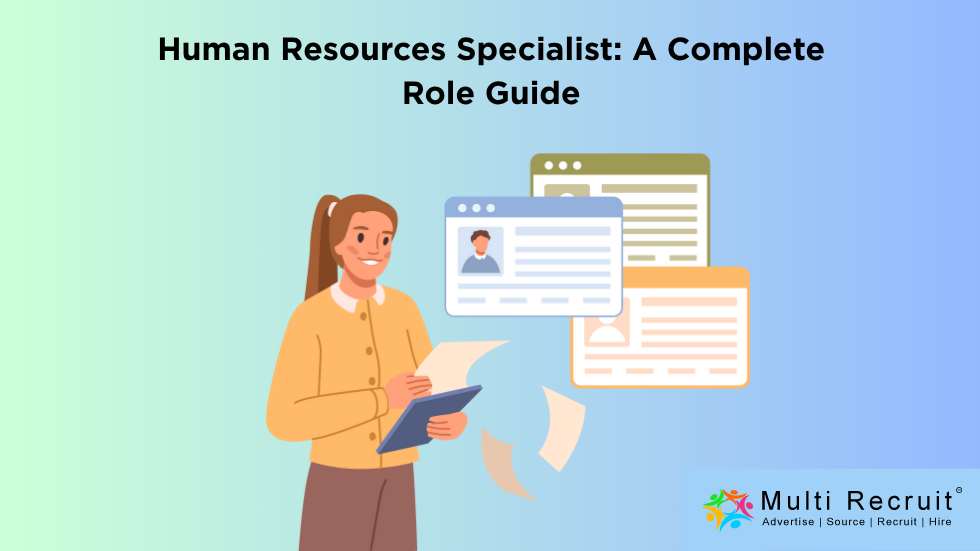The role of a Human Resources (HR) Specialist is pivotal in shaping organizational success in today’s fast-paced business environment. As we move into 2025, HR Specialists are at the forefront of addressing evolving workplace demands, from hybrid work models to diversity initiatives and technological advancements. This comprehensive guide explores the responsibilities, skills, qualifications, and future trends for HR Specialists, offering a roadmap for professionals aiming to excel in this dynamic field.
What Is an HR Specialist?
An HR Specialist is a professional responsible for executing and managing core HR functions, such as recruitment, employee relations, training, benefits administration, and compliance. Unlike generalists who handle a broad range of tasks or HR Business Partners who focus on strategic alignment, Specialists dive deep into specific HR areas, ensuring operational efficiency and employee satisfaction. In 2025, their role is critical in fostering engaged, inclusive, and adaptable workforces amidst rapid digital transformation.
Key Responsibilities of an HR Specialist
HR Specialists perform a variety of tasks to support employees and organizations. Their primary responsibilities include:
- Recruitment and Onboarding: Specialists source, screen, and interview candidates, using tools like applicant tracking systems (ATS) to streamline hiring. They also design onboarding programs to integrate new hires effectively.
- Employee Relations: Addressing grievances, mediating conflicts, and fostering positive workplace relationships are central to the role. Specialists ensure open communication to maintain trust.
- Benefits Administration: Managing compensation packages, health insurance, and retirement plans ensures employees feel valued. In 2025, 88% of workers prioritize benefits alongside salary.
- Training and Development: Specialists identify skill gaps and organize training programs, such as leadership workshops or digital literacy courses, to support career growth.
- Compliance: Staying updated on labor laws, such as wage regulations or workplace safety standards, ensures organizational adherence and minimizes legal risks.
- Payroll Support: Collaborating with finance teams, Specialists verify accurate payroll processing, including bonuses and deductions.
- Performance Management: They assist in setting performance metrics, conducting evaluations, and implementing improvement plans to boost productivity.
Essential Skills for HR Specialists in 2025
To thrive in 2025, HR Specialists need a blend of technical, interpersonal, and analytical skills tailored to modern workplace challenges:
- Technological Proficiency: Mastery of HR Information Systems (HRIS) like GreytHR or Workday is essential. Familiarity with AI-driven tools for recruitment or employee engagement enhances efficiency.
- Data Analysis: With 65% of HR decisions now data-driven, Specialists must interpret metrics like turnover rates or hiring success to inform strategies.
- Emotional Intelligence: High EI enables Specialists to empathize with employees, resolve conflicts, and build trust across diverse teams.
- Communication: Clear verbal and written communication ensures policies, benefits, and expectations are understood by all stakeholders.
- Cultural Competence: Sensitivity to diverse backgrounds supports diversity, equity, and inclusion (DEI) initiatives, fostering inclusive workplaces.
- Time Management: Juggling recruitment, compliance, and employee support requires strong organizational skills to meet deadlines.
- Adaptability: The ability to pivot in response to new regulations, technologies, or hybrid work trends is critical for staying relevant.
Qualifications and Career Path
Most HR Specialist roles require a bachelor’s degree in human resources, business administration, or a related field. Some positions, particularly in compliance or analytics, may prefer candidates with a master’s degree or certifications like SHRM-CP (Society for Human Resource Management Certified Professional) or PHR (Professional in Human Resources). Entry-level candidates often start as HR assistants or coordinators, gaining experience in payroll or recruitment before advancing.
In 2025, continuous learning is vital. HR Specialists can upskill through online platforms like Coursera, offering courses in AI in HR or DEI, or by attending industry conferences. Networking with professionals through organizations like SHRM also opens doors to mentorship and career growth.
HR Specialist Trends in 2025
The HR landscape is evolving, and Specialists must adapt to these key trends:
- Hybrid Work Management: With 70% of companies adopting hybrid models, Specialists are tasked with creating policies that balance flexibility and productivity.
- Employee Well-being: Mental health programs and wellness initiatives are priorities, as 80% of employees seek employers who support holistic health.
- AI and Automation: AI tools automate repetitive tasks like resume screening, allowing Specialists to focus on strategic work like employee engagement.
- DEI Focus: Organizations are doubling down on DEI, with Specialists leading training and policy changes to reduce bias and promote equity.
- Sustainability: HR Specialists are increasingly involved in ESG (Environmental, Social, Governance) initiatives, aligning HR practices with sustainable goals.
Challenges and Opportunities
HR Specialists face challenges like navigating complex regulations, managing remote team dynamics, and addressing burnout in high-pressure environments. However, these challenges create opportunities to innovate. By leveraging AI, Specialists can streamline workflows, saving up to 20 hours weekly on administrative tasks. By prioritizing well-being and DEI, they build loyal, diverse teams, critical in a competitive talent market where 68% of organizations struggle to hire.
How to Excel as an HR Specialist
To succeed in 2025, HR Specialists should:
- Upskill Regularly: Enroll in courses on data analytics or HR tech to stay competitive.
- Build Relationships: Collaborate with managers and employees to understand their needs and foster trust.
- Stay Informed: Follow HR blogs, podcasts, and webinars to track trends like ESG or hybrid work policies.
- Seek Feedback: Regularly assess your performance through peer reviews or mentorship to identify growth areas.
- Leverage Technology: Embrace tools like HRIS or AI platforms to enhance efficiency and decision-making.
Conclusion
The HR Specialist role in 2025 is dynamic, demanding a mix of technical expertise, emotional intelligence, and adaptability. From recruitment to compliance, Specialists are the backbone of HR, driving employee satisfaction and organizational success. By mastering key skills and staying ahead of trends like AI and DEI, HR Specialists can shape the future of work. At Multi Recruit, we’re committed to empowering HR professionals with resources and opportunities to thrive in this evolving landscape. Whether you’re starting your career or advancing, this role offers a rewarding path to make a lasting impact.
